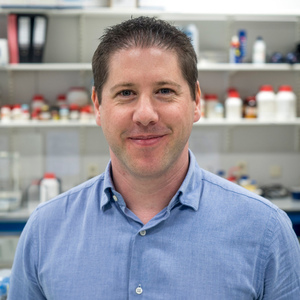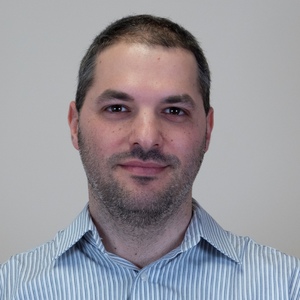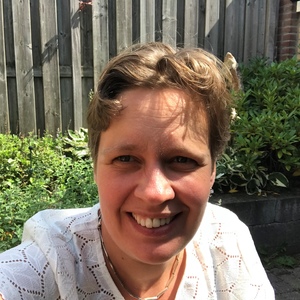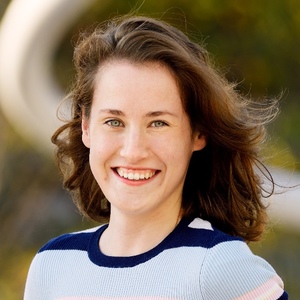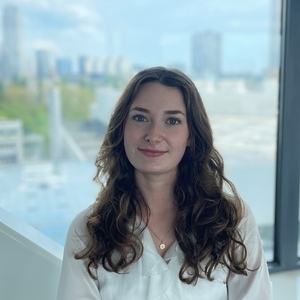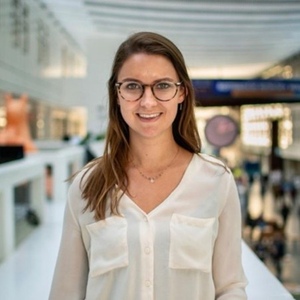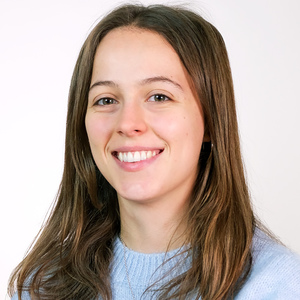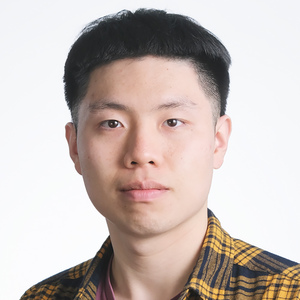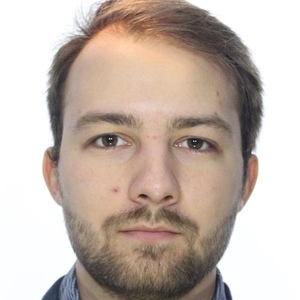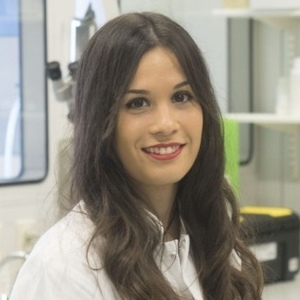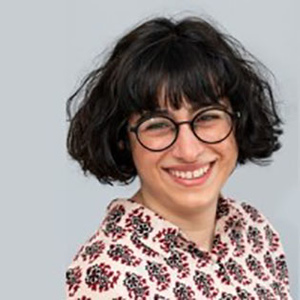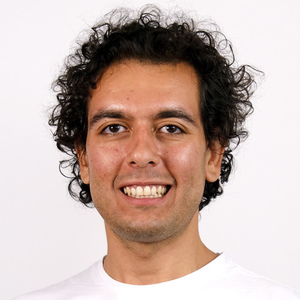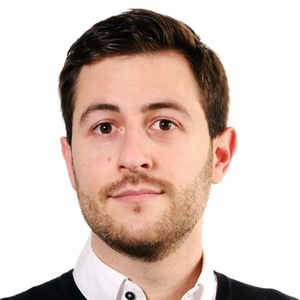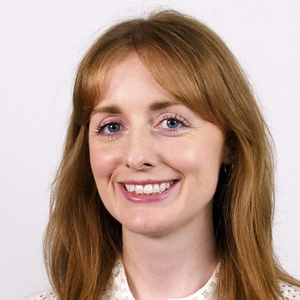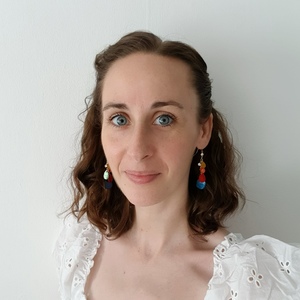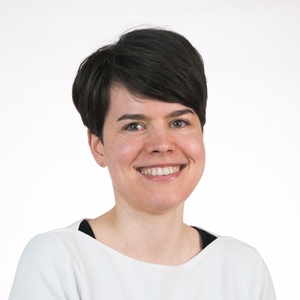Eric Farrell is Professor at Erasmus MC. In 2012 he established the Bone Tissue Engineering Research group within the Department of Oral and Maxillofacial Surgery. In doing so he initiated one of the world’s first research teams focused on the process of endochondral ossification in tissue engineering. With the knowledge that endochondral ossification also plays an important role in multiple diseases he established independent lines exploring these topics, while maintaining a leading position in bone tissue engineering research. One of these has been to develop in vitro and in vivo models of endochondral ossification to study processes such as osteoarthritis and cancer metastasis, for which he has received competitive EU Funding from the Marie Curie ITN (Coordinator of CarBon project) and FET Open (PI on B2B project), amongst others. In the coming years he aims to contribute new knowledge through fundamental and applied research to address these topics, focusing both on disease modelling and bone tissue engineering strategies.
Prof. Farrell has significant experience in the management of large research projects and has successfully led several PhDs and Master students to the completion of their research projects. He has published extensively in the field of bone tissue engineering and regenerative medicine since 2006. These articles described the use of multiple in vitro models of bone and blood vessel formation, various hydrogels and biomaterials as well as the development and use of bioreactors. He has a well-established network within the field, demonstrated by his involvement in the Tissue Engineering and Regenerative Medicine International Society (TERMIS), first as council member of the EU chapter, then Secretary and currently as Secretary of the Governing Board. He is also associate editor of Frontiers in Bioengineering and Biotechnology.
Andrea Lolli is Assistant Professor in the Bone Tissue Engineering Research group. He obtained his PhD in Molecular Medicine and Pharmacology at the University of Ferrara, Italy. During this time, he developed a growing interest in the mechanisms that guide stem cell differentiation, and the application of this knowledge to regenerate osteochondral tissues. In his PhD project he established gene silencing strategies to induce the chondrogenic differentiation of stem cells without using growth factors, providing a new route to guide cartilage repair. In 2016 Andrea moved to the Netherlands for a postdoctoral position at Erasmus MC within the Marie Sklodowska-Curie ITN TargetCaRe. Following-up on his previous work, he developed a microRNA therapy approach to enhance cartilage repair in vivo, by targeting endogenous progenitor cells with antimicroRNA-activated materials. In 2019 Andrea started his work in the group of Eric Farrell. This allowed him to broaden his research focus with the study of the mechanisms of endochondral bone formation, and the application of new experimental models of bone formation for disease modelling.
In addition to his research activity, Andrea supervises BSc, MSc and PhD students, and performs teaching activity within Erasmus MC. He is member of the PhD/postdoc committee of the Molecular Medicine Postgraduate School of Erasmus MC, and board member of the Netherlands Society for Biomaterials and Tissue Engineering (NBTE). Andrea recently obtained an NWO-XS Science grant (PI) and a Health~Holland TKI-LSH grant (co-PI), which will further support the research of the group on advanced experimental models for bone-related diseases.
Janneke was born in September 1981 in Krimpen aan den IJssel, a small town close to Rotterdam in the Netherlands. She graduated in Biochemistry at the Hogeschool Rotterdam (Bachelor of Applied Science) in 2002.
She performed her internship at TNO, division Prevention and Health, department of Infection and Immunological diseases in Leiden.
From 2002 to 2004 she was a research technician in the group of Dr. Sandra Einerhand (group of pediatric gastrointestinal diseases and nutrition) in the laboratory of Pediatrics, ErasmusMC in Rotterdam. For this project she studied the role of Cyclooxygenases in Rotavirus infections.
From 2004 to 2012 she was a research technician in the group of Dr. Ingrid Renes, also in the laboratory of Pediatrics, Neonatology department, ErasmusMC in Rotterdam. In the group of Dr. Ingrid Renes they studied the role of Mucins in development of the intestine, as well as its role in inflammatory bowel diseases. As a part of collaboration between the working groups of Dr. Ingrid Renes and Dr. Isabelle van Seuningen she worked in November 2005, march and September 2006 at the laboratory of Dr. Isabelle van Seuningen, Inserm U560, Lille in France. In the research group of Dr. Isabelle van Seuningen the main focus was the role of transcription factors on Mucin gene expression.
From 2012 until present she is part of the bone tissue engineering research group of Dr. Eric Farrell, department of Oral and Maxillofacial Surgery, laboratory of Orthopedics, ErasmusMC. The main focus of the group is to unravel the mechanics of endochondral bone formation, and investigating how to modulate new bone formation and the various cellular interactions that occur during this process. The group has expertise in 3D cell (co-)cultures and use of scaffolds, in vivo generation of tissue engineered bone and osteoimmunology.
Imke Jansen grew up in Riethoven, a small village in the south of the Netherlands. She completed her bachelor Biomedical Engineering at the TU Eindhoven. During her master, she specialized in orthopaedic biomechanics and followed her interest in bone tissue engineering. She performed her master internship at the Erasmus MC, and was involved in setting up a longitudinal µCT model for the analysis of an in vivo screening platform to evaluate bone grafts. Afterwards, during her master thesis, she focussed on a human ex vivo bone model to study anti-osteoporotic drugs.
In September 2021 she started her PhD under to supervision of Kim van der Heiden and Eric Farrell in the CAPTURE project, to define new imaging biomarkers for stroke by unravelling atherosclerotic cap rupture, with a focus on microcalcifications.
Anita was born and raised in Kerala, south of India. She moved to New Delhi to pursue a bachelor's degree in Chemistry (Hons) from St. Stephen’s College, University of Delhi. In 2021, she relocated to Europe to pursue an Erasmus Mundus Master’s in Bio and Pharmaceutical Material Sciences, which gave her the opportunity to study at various universities across Europe like University of Pisa, Polytechnic University of Catalunya and University of Silesia in Katowice. During her master’s program, she was introduced to the field of tissue engineering, which inspired her to undertake her Master’s thesis at University College London, where she worked on developing a 3D in vitro model of the pancreatic cancer stroma using polymeric scaffolds.
In 2024, Anita began her PhD at AO Research Institute in Davos, Switzerland. Her research is carried out in close collaboration with the Farrell lab, and under the expert supervision of Professor Eric Farrell (Erasmus MC), Dr. Sophie Verrier (AO Foundation) and Dr. Esther Wehrle (AO Foundation). Her PhD work focusses on the development of a 3D in vitro micro-vascular invasion model of the hypertrophic cartilage to understand the role of vasculature in both healthy and compromised states of bone healing
Tess was born and raised in Rotterdam. She completed both her Bachelor’s and Master’s degrees in Molecular Life Sciences at Utrecht University. During her Master’s program, she interned with the Molecular Targeted Therapies group at Utrecht University. For her second internship, Tess conducted research at the Laboratory of Experimental Transplantation and Intestinal Surgery (LETIS) at Erasmus MC. Following the completion of her studies, she sought to explore tissue engineering within a translational setting.
In September 2023, Tess began her PhD within the Bone Tissue Engineering group at Erasmus MC as part of the AddBone project. This project aims to translate bone tissue engineering to the clinic by combining biodegradable microcarriers with large-scale bioreactor cultures to expand and differentiate mesenchymal stem cells (MSCs). It is a collaboration between Erasmus MC, Scinus Cell Expansion and IamFluidics. Her work is supervised by Prof. Eric Farrell and Dr. Ruud Das (Scinus).
Judith Veldman has been all over the Netherlands; born in the south (Veldhoven) and grew up in the north (Heerenveen), did her studies in Groningen and Rotterdam, and has settled in Breda for now. After a year of Life Science and Technology, majoring in Medical Pharmaceutical Sciences, in Groningen, in 2014 she moved to Rotterdam for her Medical studies followed by an additional master's in Molecular Medicine. This combination led to a particular interest in translational medicine and bridging the gap between molecular science and clinical application. For her second-year master's in Molecular Medicine, she joined the Connective Tissue Repair group for her internship and thesis. Under the supervision of Mauricio Ferrao Blanco, she applied a drug repurposing strategy with open-access single-cell RNA sequencing to identify and validate potential drugs targeting chondrocyte hypertrophy in osteoarthritis.
In September 2022, she was given the opportunity to continue her work at the lab with a PhD under the supervision of Gerjo van Osch, Eric Farrell, and Andrea Lolli. In the PhD she will be focusing on the use of transcriptomic data and in vitro validation to identify new treatments for osteoarthritis in the context of the HypOA and OAinject project.
Amaia was born and raised in Donostia-San Sebastián, a small city located in the Northern coast of Spain. During her Bachelor studies in Biomedical Engineering (University of Navarra, Spain) she performed her thesis work in the Tissue Engineering Research Group in the Biodonostia Health Research Institute, focusing on the neuromuscular innervation and aging. Seeking to expand and deepen her knowledge on Regenerative Medicine, in 2019 she moved to The Netherlands, to pursue a Master’s degree at the TU Delft. Her Master thesis consisted on evaluating the osteoimmunomodulatory properties of a biofunctionalized 3D printed titanium bone implant and consisted of a collaborative project between the TU Delft and Erasmus MC.
In October 2021 Amaia started her PhD in the Bone Tissue Engineering Group in Erasmus MC, under the supervision of Eric Farrell and Andrea Lolli. Her project, BoneMeND (Bone MEtastasis iN a Dish) aims to develop in vitro platforms to model bone formation that can be used to understand the role of bone in health and disease, for example in recapitulating the process of cancer cell migration to the bone.
Researcher interested in bone diseases and bone formation mechanisms. I started with a Bachelor’s degree in clinical medicine (2011-2016), and a Master’s degree in orthopedics (2016-2019) at Wenzhou Medical University, in China. In this period, I used to work as a member in the projects supported by The National Natural Science Foundation of China (NSFC) and The Natural Science Foundation of Zhejiang Province (ZJNSF). In 2020 I started my PhD in bone biology and disease modelling at the Oral and Maxillofacial Department at Erasmus MC. Currently I work mainly within the Breast to Bone project (B2B) to develop new advanced strategies to model endochondral ossification and bone vascularisation.
Biochemist and Tissue Engineer interested in how cell communication and their environment influences cell behaviour. I started out with a BSc at the Julius Maximilian’s Universität Würzburg, which was then followed up with a MSc in 2016 focusing on adipose tissue engineering and how its microenvironment impacts adipogenesis. In this period, I was able to gain international experience through a research internship at the National University of Singapore Tissue Engineering Program (NUSTEP). Currently I expect to complete my PhD in Biomedical Sciences in 2021 at the department of Otorhinolaryngology of the Erasmus MC Rotterdam. Here I work as part of European consortium (CarBon – Horizon 2020) to better understand the involvement of the secretome in the transition of cartilage to bone. For this I took a closer look at the involvement of blood vessels and their invasion into cartilage to understand how it is regulated. Next to classical in vitro assays, I established an in vivo chick chorioallantoic membrane assay as well as an in silico pipeline to identify angiogenesis regulating factors during endochondral ossification.
Graduate in BSc. Biotechnology (University of Salamanca, Spain, 2015) and MSc. Cancer Immunology and Biotechnology (University of Nottingham, United Kingdom, 2016). Finalising her joint PhD doctorate at the Erasmus Medical Centre (Rotterdam, the Netherlands) and the University College Dublin (Ireland). Currently working as a Post-Doctoral Researcher in the department of Immunopathology at Sanquin (Amsterdam, the Netherlands). Passionate about the use of immunotherapeutic approaches and translational medicine to improve healthcare. Trained and experienced in cell (co-)culture, immune cell isolation, ELISA, ELISpot and flow cytometry. Interested in scientific communication, project management and scientific marketing.
Shorouk is a medical biotechnologist by training. She carried out her PhD in tissue engineering at Erasmus MC (Connective Tissue Repair Lab and Calcium and Bone metabolism Lab). The goal of her thesis was to identify and evaluate the therapeutic potential of novel growth-factor based therapies for successful bone repair. As postdoc she joined the Bone Tissue Engineering group to develop a biological strategy to investigate novel non-prosthetic solutions for osteochondral regeneration and osteoarthritis treatment. Currently she works as senior scientist at Janssen. Shorouk is passionate about medical innovations, communication, and global health.
Pre-clinical pharmacologist with expertise in drug discovery, inflammatory signalling pathways and pathological endochondral ossification.
My passion for molecular pharmacology started since my studies in Pharmaceutical Chemistry, which I performed in Uruguay and Brazil. I later gained experience in R&D in the Pharmaceutical Industry in Uruguay where I worked for two years. Motivated to expertise the drug discovery field, I continued my studies obtaining a MSc in Biomedicine in Spain and a PhD in the The Netherlands in the group of Prof. Gerjo van Osch.
In the past few years I have been working in the identification of therapeutic targets for Osteoarthritis. My research line focuses on the interaction of macrophages and chondrocytes in the joint, as main drivers of disease progression.
Biomedical scientist and biotechnologist aiming to develop the next medical innovations. If life's molecular manual is accessible, can't we follow it to create something good and meaningful? During my career I gained international experience on skeletal tissue engineering, production of recombinant proteins and metabolites, cancer and diabetes.
I graduated in 2014 from my BSc in Biotechnology at the University of Valencia (Spain). Then, in 2016 I obtained my MSc in Regenerative Biology and Medicine at the Technical University Dresden (Germany). Now, I expect to obtain my PhD in Biomedical Sciences in 2021 at the Erasmus Medical Center Rotterdam, which was framed into the European consortium CarBon.
During my PhD project I investigated the role that different extracellular matrix proteins play in the process of endochondral ossification. In addition, I developed a new in vivo model for the screening of novel bone grafts, where I evaluated the therapeutic potential of selected matrix proteins, biomaterials and other tissue engineered constructs.
Niamh obtained her PhD in Regenerative Medicine from the National University of Ireland, Galway in 2015. Her PhD thesis was focused on the modulation of inflammatory processes associated with osteoarthritis (OA), utilising human mesenchymal stem cells (MSCs) as a vehicle to deliver interleukin-10 as a potential therapy for OA. Throughout this time, she developed an interest in the use of MSCs as a cell source in regenerative approaches for the treatment of cartilage defects. In 2015 Niamh moved to Switzerland to begin her first post-doctoral research position at the AO Research Institute, where she had the opportunity to investigate the impact of the biomechanical as well as biological environment on the cartilage forming capacity and secretory profile of MSCs. From 2017 to 2021, Niamh worked as a postdoc with the Dept. of Orthopaedics and the group of Eric Farrell at the Dept. of Oral and Maxillofacial Surgery at Erasmus MC, where her research was focused on unravelling the influence of the immune system on the development of OA, as well as bone regeneration strategies utilising MSCs. In addition to her research activities, in 2020 Niamh also began working as a project manager on the EU Horizon 2020 project “CarBon”.
Caoimhe graduated from a bachelors in Biomedical Science in 2011, followed by a masters in Regenerative Medicine in 2012. She began her PhD with the Bone Tissue Engineering Research Group in 2013, whereby her research focused on allogeneic host immune responses during the process of MSC-mediated endochondral bone formation, with the goal to improve bone regeneration for patients with long bone defects. During these 4 years, she strived to determine the interplay between the host immune system and chondrogenically differentiated MSCs through immune cell and allogeneic stem cell co-culture systems in vitro, in addition to humanised mouse model systems. Caoimhe defended her doctoral thesis in 2017 and since then she has been working as a Postdoctoral Research Fellow within the department of Immunology at Erasmus MC. She is involved with multiple projects within the Infection and Immunity research group studying T cell immunity against cancer and infections. Most recently her research has also included investigating T cell responses during SARS-CoV-2 infections.
Andrea is a post-doctoral researcher in the Bone Tissue Engineering Research group. She studied Technology of Functional Materials at the Julius Maximilians University in Wuerzburg (Germany) with focus on biomaterials. During her Bachelor studies she joined the Institute of Biomaterials and Biomedical Engineering at the University of Toronto (Canada) to investigate injectable Calcium phosphate (CaP) materials for bone repair. In her master’s project Andrea was investigating cryo-structured collagen I/II scaffolds for application in Meniscus tissue engineering. Andrea obtained her PhD in Biomedicine at the Graduate School of Life Sciences Wuerzburg (Germany). During her PhD she was establishing an osteochondral defect model characterized by its separated media compartments for bone and cartilage tissue (FP7 funded EU project HydroZONES). In 2018, Andrea joined the Biomedical Materials focus area at the AO Research Institute in Davos exploring the interaction of cells with hyaluronan biomaterials and shear induced alignment of collagen fibrils through 3D extrusion bioprinting. Within the osteochondral defect collaborative research program Andrea was studying acellular and cell laden biomaterials (hydrogels) for application in cartilage tissue engineering and repair. At Erasmus MC she will focus on the zone of calcified cartilage, the thin tissue layer connecting articular cartilage and subchondral bone.

